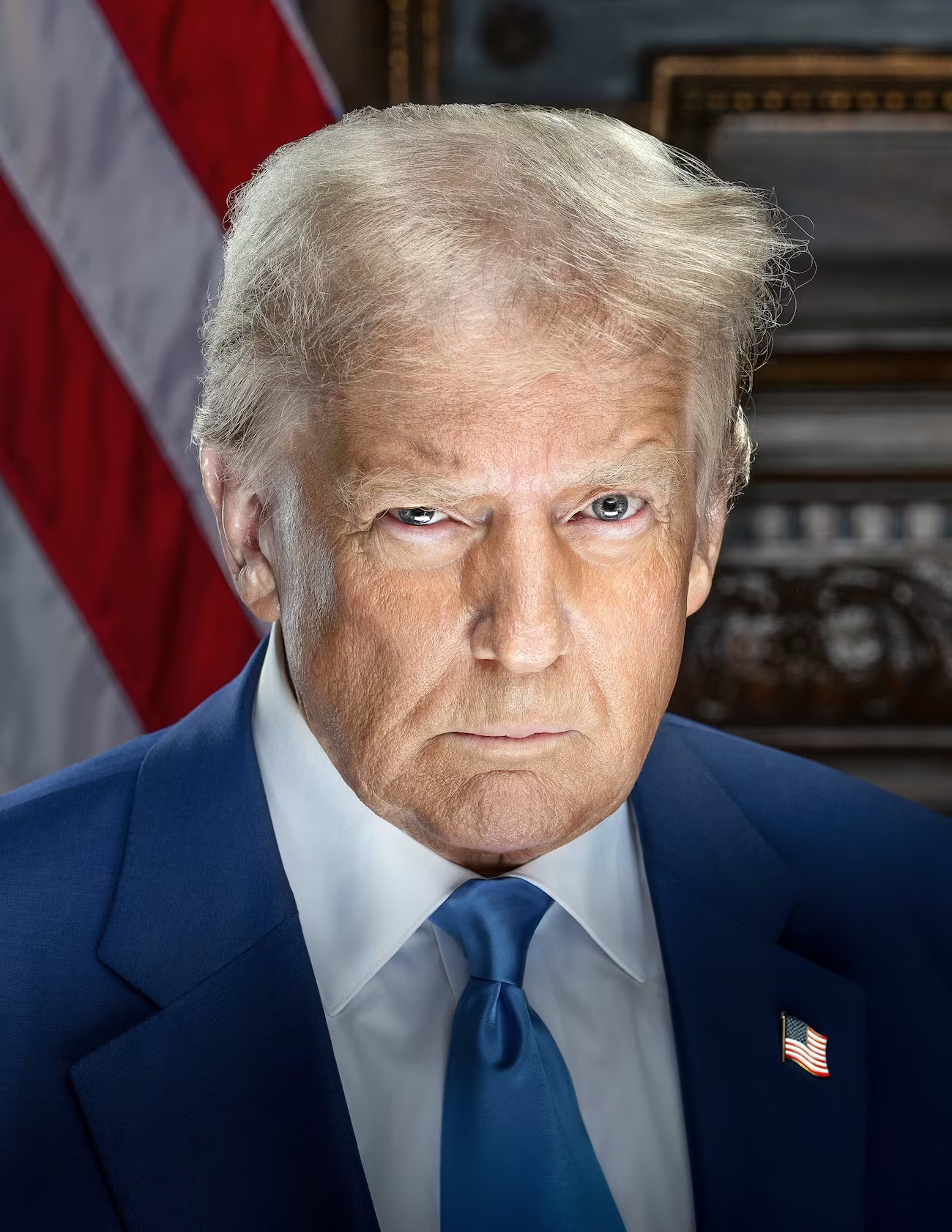
Trump’s “Art of the Deal” era is back
“She’s telling us how to fight ISIS. Just go to her website. She tells you how to fight ISIS on her website. I don’t think General Douglas MacArthur would like that too much.”
This memorable line comes from 2016 when the then-Republican Presidential nominee Donald Trump and the then Secretary of State Hillary Clinton engaged in a ferocious debate. Few expected the entertainment media personality to beat the established democratic politician at the time. Yet he did, and in November 2024, he repeated his success. This time, winning both the electoral and the popular vote and securing victories in key swing states like Pennsylvania.
Depending on where you stand politically, you either regard this as a “threat to democracy” or an act “of taking the country back.” Yet it’s the legitimate reality, and today, Trump takes office, becoming the 47th President of the United States. He is the only person to do so after Grover Cleveland, who won terms non-consecutively in the 19th century. And he does so with an upper hand after the Republicans secured a trifecta: clinching the White House, flipping the Senate, and retaining control of the House of Representatives.
While opinions as to what to expect from Trump 2.0 vary, the prevailing consensus is that he will be much more resolute, foremost on domestic issues, where the Republicans identified their priority goals of “draining the swamp” and launching mass deportations of “illegal aliens.”
Meanwhile, on the world stage, Trump is slated to remain the way he has always been: unpredictable. Or, as many experts told the Euromaidan Press over the course of two months, “Look at what he does, not what he says.” They cited his applaudable decisions during the first tenure, like the approval to supply Javelins to Ukraine and the sanctioning of Putin’s pet project Nord Stream 2, which contradicted the notion of his alleged “friendship” with Russia’s ruler Vladimir Putin.
Despite the ambiguity, the general trajectory has been slowly crystallizing, and his foreign policy cabinet picks, in particular, offer a good insight into who will be shaping his agenda worldwide in the next four years. The incoming Secretary of State Marco Rubio, national security advisor Mike Waltz, and potential Defense Secretary Pete Hegseth fleshed out their general position toward the Russo-Ukraine war loud and clear.
In a nutshell, the belief is that Russia, identified as the aggressor, will not win this war. But neither will Ukraine, as the window of opportunity to do so has been missed. They point out that Ukraine has ended up in a war of attrition and a stalemate, for which they, predictably, blame the Biden administration and his “slow-walking surrender.”
This notion is by no means unique and is widely held among the American Conservative crowd, with commentator Bill O’Reilly serving as a good example. He calls Putin “a dictator” but also supports the ceasefire in Ukraine to show Putin “that this is where it stops,” especially since American society’s desire to provide funding to Ukraine has notably dried up. This is, in part, Ukraine’s fault as it failed to fill in the partisan communication vacuum in 2022-2024, allowing Russia to amplify the domestic problems in the US and beyond eventually; Biden’s inability to explain that “aid” is in fact military provision much of which stays in the US; and natural disasters like the wildfires in California where people lost all their possessions overnight.
It is also reasonable given that if the war continues at its current version and pace, Ukraine will lose not only its soldiers but also critical resourcesUkraine will lose not only its soldiers but also critical resources like lithium deposits that Putin is slowly capturing in eastern Ukraine. This is neither sustainable nor strategically right as it could well end up in the front collapsing and Ukraine ending up in a truly dire situation.
Whether this situation can be changed in Ukraine’s favor and whether Putin wants or will agree to a ceasefire, as some believe he’s too old for it, depends on the understanding of what his leverage over the US is in this “deal-making.”
The short answer is close to none.
If you look at the past two months, you’ll see that a certain negotiation stage has already been set by both Biden and Trump teams. This particularly applies to the Middle East, where Putin’s gamble is in complete shambles. Hamas and Hezbollah, used by Moscow in 2023 together with its ally Iran to divert global attention from the Russo-Ukraine war, are crippled and no longer pose a tangible threat to Israel, which is now closely cooperating with Kyiv, as per Ukraine’s Ambassador in Israel recent interview.
The latest ceasefire between Hamas and Israel, negotiated by two administrations, and the collapse of the Bashar Al-Assad regime are likewise detrimental to both Moscow and Ukraine’s second enemy, Tehran, which is reminiscent of Trump’s order to kill Iranian major general Qasem Soleimani.
Trump’s vocal calls on NATO members to increase the spending to 5%, already supported by Poland, deploy European peacekeepers to Ukraine, and the pledge to increase the production of LNG in the US do not at all correspond with Russia’s strategic geopolitical goals. Even the audacious claims, no matter how hypothetical, pertaining to Canada, Greenland, and the Panama Canal, which are strategic resource- and location-wise, are hardly in the interest of Moscow or Beijing.
Putin’s European gas empire, which he spent decades building with the help of Germany and others, is likewise in questionable condition. His Nord Stream 2 project was rendered defunct, and gas transit via Ukraine to Europe has been cut off, with no tangible opposition from the US, which likely sees this as an opportunity to sell its LNG later to more European countries just like it does to Poland.
Biden, though late, already allowed Ukrainian long-range strikes into Russia’s Kursk Oblast and imposed truly effective oil sanctions on the already overheated Russian economy, which is further complicating Moscow’s position as the nuclear card does not have an effect on Trump and his team akin to that of Biden’s.
This does not mean they’re fully deprived of leverage, including psychological one, but overestimating it would be wrong. Putin will likely seek to flatter Trump, though the latter is unlikely to be impressed that in 2024, the Russian army captured land slightly more than Luxembourg and Liechtenstein combined, with the embattled Pokrovsk being the size of Oosterhout in The Netherlands.
In this process, it is in Ukraine’s best interest to leverage its position by strategically observing for the time being. Kyiv has already outlined its primary negotiation positions and relayed them accordingly, including in President Volodymyr Zelesnkyy’s viral interview with Lex Fridman.
Its bargaining power is limited, a notion that is recognized at President Zelenskyy’s office that, in November 2024, spoke off record to Euromaidan Press following Trump’s victory, saying, “Right now, we’re just going to wait and not make any dramatic moves. Let the katsapy (derogatory for Russians) be the ones who breach any potential agreement that Trump would seek to create,” adding that “we’re going to be working with the military-industrial complex and have some good deals to offer. It’s in their interest too. Lots of lobbying ahead.”
If Trump chooses to, then he has all “the tools to really hurt Putin,” and while he’s already floating them, like extra sanctions, he needs to be fully convinced to do so. And the best person to convince him ultimately is none other than Putin himself due to his incessant hunger for power. Then the US’s response could be the kind that “General Douglas MacArthur would actually like.”
Read more:









